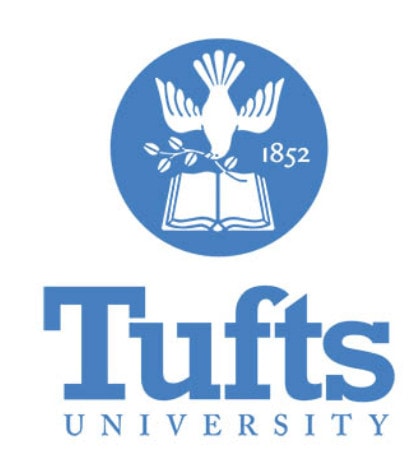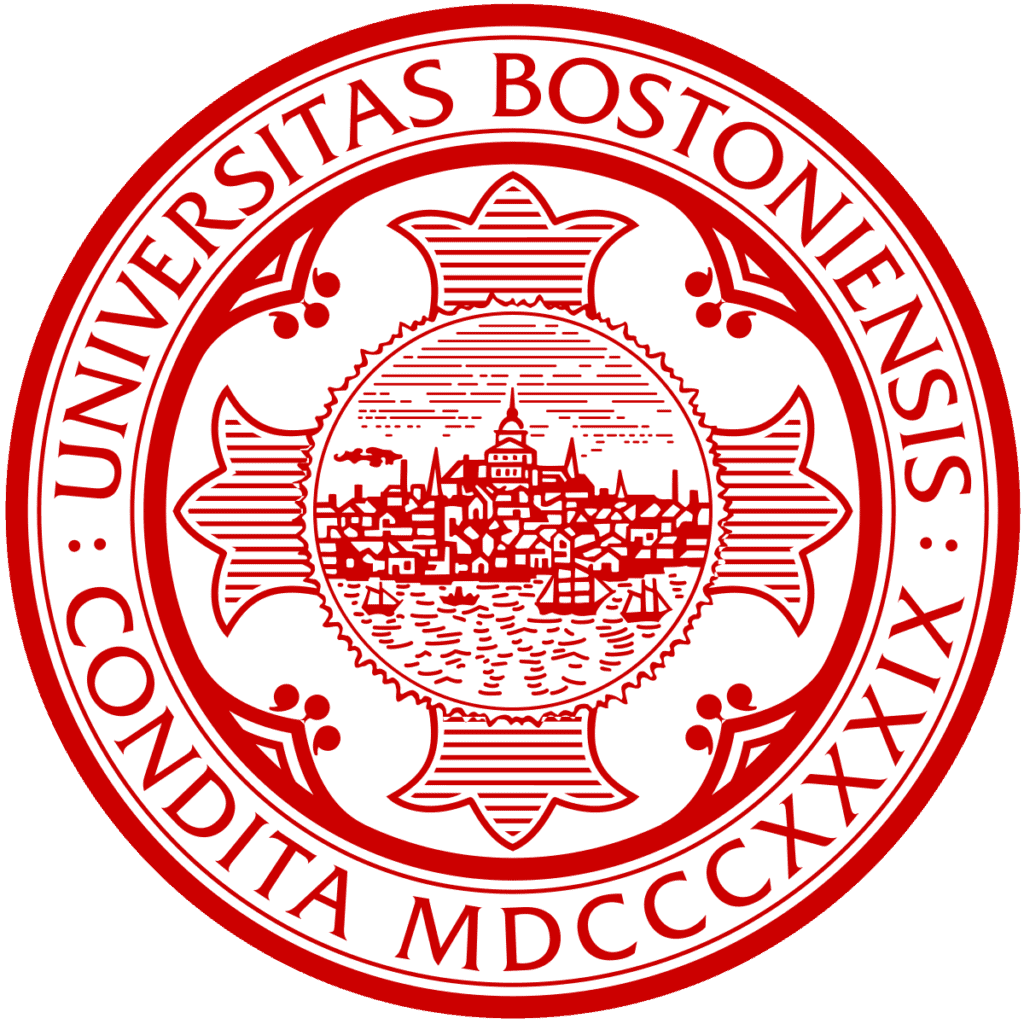The weather in Massachusetts, and New England in general, is famous for its unpredictability. A local saying goes that if you don’t like the weather now, just wait a few minutes.
With humid, hot summers and snowy, freezing winters, this state requires plenty of reliable HVAC systems to keeps the residents comfortable and safe. Not only is Massachusetts a prosperous and densely populated state, it also offers some of the best schools in the country, and in the world. Working and getting trained in HVAC here is a great way to start in the industry.

If you’re interested in learning to work in HVAC and you live in or near Massachusetts, this article will help you locate HVAC schools near you. We’ve prepared a brief summary of some of the bigger programs and a list of contact information for many more.
Featured Schools in Massachusetts
Requirements to Be an HVAC Tech in Massachusetts
A license or certification is not required to work as an HVAC technician in Massachusetts, which allows techs to start working immediately after completing their education or with just limited experience. However, technicians in the refrigeration field have to get the EPA refrigerant handling certification before becoming a licensed refrigeration technician. To learn more details about the required certification, read this article.
The state law focuses on refrigeration technicians and stipulates that anyone working with more than 10 tons of refrigeration must be licensed. The good news is that if you plan to work as a residential refrigeration tech, the certification is not required, except for the largest homes.

The route to certification is simple. First, you’ll have to complete an apprenticeship, after which you can apply for a refrigeration technician license. To qualify, you’ll need either 6000 hours of apprentice experience and 250 hours of training from an approved school, or 4000 hours of apprenticeship and 500 hours of training. A third option is 2000 hours of apprenticeship and 2000 hours of training, including 700 hours of shop-related work, 100 hours of refrigeration theory, and 100 hours of related MA electrical code training. Finally, you can apply for a contractor license after completing 2000 hours of work experience and 100 hours of additional training on refrigeration.
Proof of work experience in another state can also be submitted to meet the requirements listed above.
HVAC Tech Salary and Job Prospects in Massachusetts
The good news is that HVAC technicians in Massachusetts earn a median salary of $56,520, according to 2016’s Bureau of Labor Statistics. Entry-level positions generally start at around $17.16 per hour, while having the refrigeration certification creates even more opportunities. The high demand of HVAC experts in Massachusetts is expected to cause the employment rate in this area is to rise 19% from 2014-2024. Massachusetts ranks fifth in the country for HVAC technician salaries.
The average yearly salary is $57,110 but can range from $35,440 up to $80,480. HVAC technicians earn an average hourly wage of $27.46 but range from $17.04 up to $38.69.
You can earn more as an HVAC Tech if you have some work experience, or training and certifications from a reputed school, as they arrange placements for their graduates with top employers.
Top HVAC Schools in Massachusetts
Top HVAC School in Boston
Benjamin Franklin Institute of Technology

Certificate in HVAC&R
The certification consists of an 800 hour, nine-month, full-time day or evening program which provides students with the information and first hand skills to become successful HVAC&R technicians. It provides test preparation for the EPA certification, as well as an R-410 A certificate and 10-hour OSHA Safety certificate upon completion.
Topics covered in the curriculum include the principles of refrigerants, solder and braze pipes, fittings, flare, and swage tubing.
You will be taught how to troubleshoot residential and larger commercial units, test pressure, and detect leaks. You’ll also get 2000 credit hours towards the Refrigeration Technician Examination and 150 hours of electrical code needed for licensure, making this an ideal program if you want to start working in Boston as a technician.
Other Top HVAC Schools and Colleges in Massachusetts
Bay State School of Technology

Domestic Refrigeration & Air Conditioning and Commercial Refrigeration & Air Conditioning (HVACR)
Offering both Domestic and Commercial HVAC&R programs, the program is half theoretical and half hands-on practical shop training. The school has been imparting these skills for almost 30 years, so the program is well established. Students receive a tablet as a learning tool, and all students receive preparation and training to take a National Service Certification test, offered by the Professional Service Association (PSA). PSA has designated Bay State Tech as one of only four training and testing centers in the U.S.
Besides the NSC test, you will also be prepared for EPA Certification. After the completion of the program, you’ll be prepared to enter the workforce as an entry-level technician. Bay State graduates are employed by industry employers who often come to the school to recruit graduates.
New England Institute of HVAC

Certificate Program
This course incorporates hands-on training with small class sizes which cover theory. It offers both day and evening classes, as well as tools for the practical learning. It prepares you for the EPA Test and offers NATE Specialty Tests, NATE CEU classes, and Oil Heat License Prep classes, as well as an OSHA Ten Hour Certification.
The tuition is affordable and financial aid is available for qualified students. The program is recognized by the Department of Public Safety for License Testing.
New England Tractor Trailer Training School NETTTS

Certificate Program
The HVAC Technician Training School in Northern Massachusetts will teach you how to proper installation and maintenance of heating, air-conditioning, refrigeration, and ventilation equipment. It provides access to online 3D simulation labs and features training with instructors from the industry. The school provides you with a personal set of HVAC&R tools and equipment, and upon completion, you’ll receive Oil Burner Training, EPA Certification, and 4,000 hours towards your Massachusetts Refrigeration License.
The Peterson School

HVAC&R Commercial and Industrial Refrigeration Prep
This program is for beginners with no prior experience in the trade, or people working in the field wishing to obtain an HVAC&R license. The fifteen week course consists of lectures and hands-on lab experience.
Graduates can pass the E.P.A. license test on refrigerants, and receive 70 hours of accreditation towards the 100 hours of theory required to obtain their Refrigeration State License. They are ready to work in the field on units 10 tons or less, which includes residential and some commercial units. Completing the course requires 120 hours of classes and tuition costs $ 4100 and another $350 for books and fees.
The school also offers a three course combo program. This 22 hr./week, full-time program provides training in Oil Heat Technicians License Prep, HVAC&R Commercial & Industrial Refrigeration Prep, and Basic Electricity.
Springfield Technical Community College

Certificate of Completion in Heating/Ventilation/Air Conditioning
This one year program provides students with related hands-on experience in energy auditing, along with essential theory, heating, air conditioning (HVAC) system design, ventilation, and, HVAC equipment troubleshooting and repair, and power plants operation. Both day and evening classes are offered.
Students can earn additional awards by taking the Certificate of Competency and Stationary Fireman’s examinations as directed by the Massachusetts Department of Public Safety, the EPA Technician certification, and the oil burner technician license. Graduates are ready for employment in entry-level positions in the heating and air conditioning industry.
The program costs $6,103 for in-state tuition and fees, $12,396 for out-of-state tuition and fees, and $1,200 for books and supplies.
HVAC Engineer Salary and Job Prospects in Massachusetts
HVAC Engineers in Massachusetts earn an average of $92,083 per year or $47 per hour. This is around 3.2 times more than the median wage of the country. Entry-level positions start at $64,000 while most experienced workers make up to $138,820. Mechanical Engineers earn an average hourly wage of $45.43, which can range from $30.30 and go up to $66.74.
An entry-level mechanical engineer with a bachelor’s degree earns around $61,300, according to the National Association of Colleges and Employers’ Spring 2012 Salary Survey. A master’s degree can make a big difference, bumping that up by $15,000, on average.
Top Colleges and Universities for HVAC Engineers in Massachusetts
Massachusetts Institute of Technology, or M.I.T.

Bachelor of Science in Mechanical Engineering
The premier engineering institute in the world, M.I.T., is a very tough school to gain admission into. But the name alone can open doors for you. The Bachelor of Science program requires 208 credits to graduate and students can opt for a traditional degree or a customizable degree program. The customizable degree allows students to combine a solid mechanical engineering base with courses of interest, tailoring their curriculum to fit their individual focus. The traditional undergraduate degree program at M.I.T. provides a broad foundation in the field of mechanical engineering. Along with coursework, students get to take part in projects and seminars and gain work experience, while also doing research that can impact the field.
The program has been accredited by the Accreditation Commission of A.B.E.T., as a mechanical engineering degree. The majority of graduates either join top graduate programs, join the industry, or pursue entrepreneurship.
Master’s of Science in Mechanical Engineering (SMME)
The U.S. News & World Reports named M.I.T.’s Department of Mechanical Engineering the number one mechanical engineering graduate program in 2018. The program requires at least an undergraduate-level exposure to most of the core Mechanical Engineering disciplines.
A Master’s degree at M.I.T. consists of 6 twelve-unit subjects plus a thesis and takes three regular (fall and spring) terms to complete as a full-time student.
Northeastern University

Bachelor of Science in Mechanical Engineering
Northeastern University has a famous co-op program that sets it apart from the schools on this list. The co-op program, founded nearly a century ago, is one of the largest and most innovative in the world. The college is linked with over 600 engineering employers across 33 states and around the globe. Most undergraduate engineering students elect to undertake 3 six-month assignments in the industry as part of their education.
The Bachelor of Science Program in Mechanical Engineering is accredited by the Engineering Accreditation Commission of A.B.E.T. The first year is designed to provide new students with the foundation they need for engineering such as math, chemistry, physics, and basic courses in design, problem-solving, and computation. The program requires a minimum number of courses and credits in mathematics/science, engineering topics, and general education courses to graduate.
PlusOne BS/MS in Mechanical Engineering
At Northeastern, you can take graduate credits during your junior and senior years and apply them toward both your bachelor and master’s degrees simultaneously. You may count a maximum of 16 semester hours of graduate credit toward the undergraduate degree.
Additional Degree Program-Master’s of Science in Mechanical Engineering
Students enrolled in the Mechanical Engineering Master’s program have the opportunity to also further their education with one of the many engineering graduate certificate options in combination with, or in addition to, this program. The MS in Mechanical Engineering can be combined with a Gordon Engineering Leadership certificate.
The program requires a minimum of 32 semester hours of approved course work with a minimum grade-point average (GPA) of 3.00. Three options exist for this degree, a coursework option, a project option, and a thesis option.
Tufts University

Bachelor of Science in Mechanical Engineering (BSME)
The B.S. in mechanical engineering is accredited by the Engineering Accreditation Commission of ABET and the curriculum emphasizes concepts and techniques which define the core of engineering analysis.
The four year program is structured to allow students to gradually advance from the basics to more advanced topics in engineering. The courses build up a mathematics and science background, encouraging students to explore interests in the humanities and social sciences as well as engineering, to get a well-rounded education.
Students can perform independent project work and can write an undergraduate thesis.
Additional Degree Option-Master of Science in Mechanical Engineering – Thesis Option
A Master of Science (MS) degree from Tufts requires completing ten credits to graduate from this program. Full-time MS candidates complete their degree requirements in two academic years. The thesis on an independent research work is a pivotal phase of the MS degree program. Students are also strongly encouraged to present their research at scientific conferences and publish the results of their thesis research in a peer-reviewed journal.
Additional Degree Option-Non Thesis Option
Candidates on the non-thesis track are required to complete ten (10) credits to graduate from this program. Graduates from either track can expect to be employed in the industry and in academia, or start their own businesses.
Merrimack College

Bachelor of Science in Mechanical Engineering
This program is accredited by the Engineering Accreditation Commission of ABET. Students learn how to design a system, component or process to meet desired needs while keeping in mind constraints such as economic, environmental, social, political, ethical, health and safety, manufacturability and sustainability.
Students can take part in internships and co-ops with industry leaders like Raytheon, Phillips Medical, and the M.I.T. Lincoln Laboratory.
Master of Science in Mechanical Engineering
The Master of Science in Mechanical Engineering program requires a total of 32 credit hours through a combination of four-credit foundational courses and additional electives. There is also a part-time program.
Boston University

Bachelor of Science in Mechanical Engineering
Another well-known and highly rated university, B.U. offers students several opportunities for exploring science and engineering. The UROP (Undergraduate Research Opportunities Program) is a university-wide program that provides students a stipend to work with a faculty member on research. STARS (Summer Term Alumni Research Scholars) is a college-wide program that provides housing during the summer to support students who will stay to perform research with faculty. REUs (Research Experience for Undergraduates) are programs run at multiple institutions through grants from the National Science Foundation.
Students can choose a minor from 5 field areas within engineering, which involve taking at least an additional 12 credits beyond the 136 required credits for the ME bachelor’s degree.
Master of Science (MS) in Mechanical Engineering (ME)
The MS program in Mechanical Engineering is designed to provide advanced training in specific areas of mechanical engineering for a career in either research or industry. Students can focus on a variety of disciplines, including MEMS/nanotechnology, robotics, dynamics, systems and controls, etc.
Students get to work on projects with local companies, helping them gain real-world exposure to engineering problems.
Non-thesis Option
he non-thesis option can be completed in 1 year if a student takes four courses each semester.
Thesis Option
The MS program has the option of a master’s thesis, which allows students to experience an in-depth exploration of a current research area and to make an original intellectual contribution in that area. This option can lead to research-oriented careers as well as careers in design and analysis, testing, consulting, and management.
List of MA HVAC Schools
| 1600 Osgood Street North Andover, MA 01845-1048 | 978-965-2969 | ||
| 150 Hanscom Drive Bedford, MA 01730 | 781-274-8448 | ||
| 360 Huntington Ave Boston, MA 02115-5005 | 617-373-2000 | ||
| 77 Massachusetts Avenue Cambridge, MA 02139-4307 | 617-253-1000 | ||
| 1241 Fall River Avenue Seekonk, MA 02771 | 508-336-6611 | ||
| Massachusetts Hall Cambridge, MA 02138 | 617-495-1000 | ||
| 41 Berkeley St Boston, MA 02116 | 617-423-4630 | ||
| 374 Whitmore Building 181 Presidents Drive Amherst, MA 01003 | 413-545-0111 | ||
| 1241 Fall River Avenue Seekonk, MA 02771 | 508-336-6611 | ||
| 112 Industry Avenue Springfield, MA 01104 | 413-781-2276 | ||
| 415 South St Waltham, MA 02454-9110 | 781-736-2000 | ||
| 140 Commonwealth Avenue Chestnut Hill, MA 02467 | 617-552-8000 | ||
| 41 Berkeley St Boston, MA 02116 | 617-423-4630 | ||
| One Silber Way Boston, MA 02215 | 617-353-2000 | ||
| 880 Main St Williamstown, MA 01267 | 413-597-3131 | ||
| 1241 Fall River Avenue Seekonk, MA 02771 | 508-336-6611 | ||
| One College Street Worcester, MA 01610-2395 | 508-793-2011 | ||
| 77 Massachusetts Avenue Cambridge, MA 02139-4307 | 617-253-1000 | ||
| 250 New Rutherford Ave Boston, MA 02129-2925 | 617-228-2000 | ||
| 1 University Ave Lowell, MA 01854-5104 | 978-934-4000 | ||
| 50 Oakland St Wellesley Hills, MA 02481-5399 | 781-239-3000 | ||
| 285 Old Westport Rd North Dartmouth, MA 02747-2300 | 508-999-8000 | ||
| 486 Chandler St Worcester, MA 01602-2597 | 508-929-8000 | ||
| 1 Armory Sq Springfield, MA 01105-1296 | 413-781-7822 | ||
| 140 Commonwealth Avenue Chestnut Hill, MA 02467 | 617-552-8000 | ||
| 550 Huntington Ave Boston, MA 02115 | 617-989-4590 | ||
| Medford, MA 02155-5555 | 617-628-5000 | ||
| 1241 Fall River Avenue Seekonk, MA 02771 | 508-336-6611 | ||
| Elm St Northampton, MA 01063 | 413-584-2700 | ||
| 1 Armory Sq Springfield, MA 01105-1296 | 413-781-7822 | ||
| 100 Institute Road Worcester, MA 01609-2280 | 508-831-5000 | ||
| 100 Elliott Street Haverhill, MA 01830-2399 | 978-556-3000 | ||
| 285 Old Westport Rd North Dartmouth, MA 02747-2300 | 508-999-8000 | ||
| 131 Summer Street Bridgewater, MA 02325 | 508-531-1000 | ||
| 1241 Fall River Avenue Seekonk, MA 02771 | 508-336-6611 | ||
| Massachusetts Hall Cambridge, MA 02138 | 617-495-1000 | ||
| 100 Institute Road Worcester, MA 01609-2280 | 508-831-5000 | ||
| Boltwood Avenue Amherst, MA 01002-5000 | 413-542-2000 | ||
| 100 Morrissey Boulevard Boston, MA 02125-3393 | 617-287-5000 | ||
| 670 West Boylston Street Worcester, MA 01606-2092 | 508-853-2300 | ||
| 1 Armory Sq Springfield, MA 01105-1296 | 413-781-7822 | ||
| 444 Green St Gardner, MA 01440-1000 | 978-632-6600 | ||
| 106 Central St Wellesley, MA 02481-8203 | 781-283-1000 | ||
| 41 Berkeley St Boston, MA 02116 | 617-423-4630 | ||
| 303 Homestead Ave Holyoke, MA 01040 | 413-552-2000 | ||
| 500 Salisbury St Worcester, MA 01609-1296 | 508-767-7000 | ||
| 50 College Street South Hadley, MA 01075-1489 | 413-538-2000 |
Conclusion
The state of Massachusetts is a great place to start or continue your career in HVAC, both due to the high salaries paid, and the many employment opportunities. Furthermore, some of the best engineering schools in the world offer mechanical engineering programs, with great faculty, research opportunities, and employers. If you’re looking to enter the HVAC engineering profession, you likely won’t find a better state to pursue this type of education, than Massachusetts.
Remember, when applying to schools for technical and engineering programs, do your research about admission requirements and try to visit the school to get an idea of the facilities and faculty offerings.
